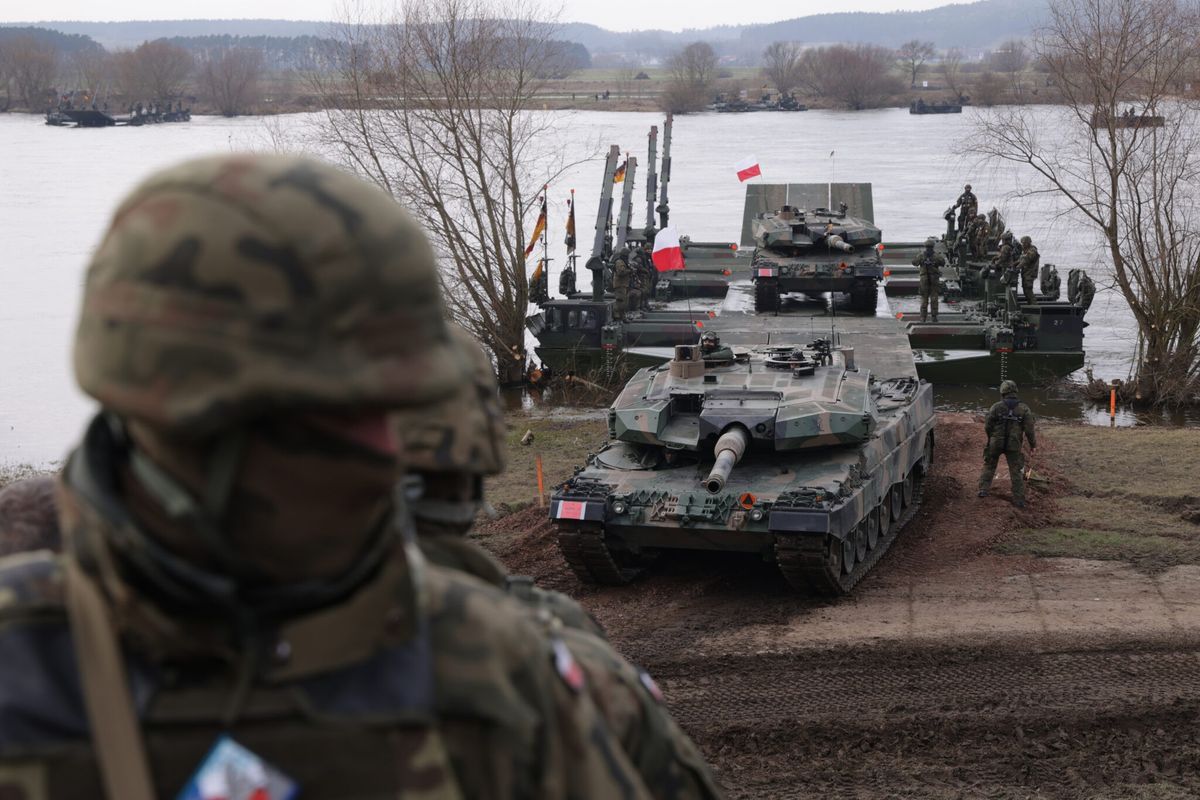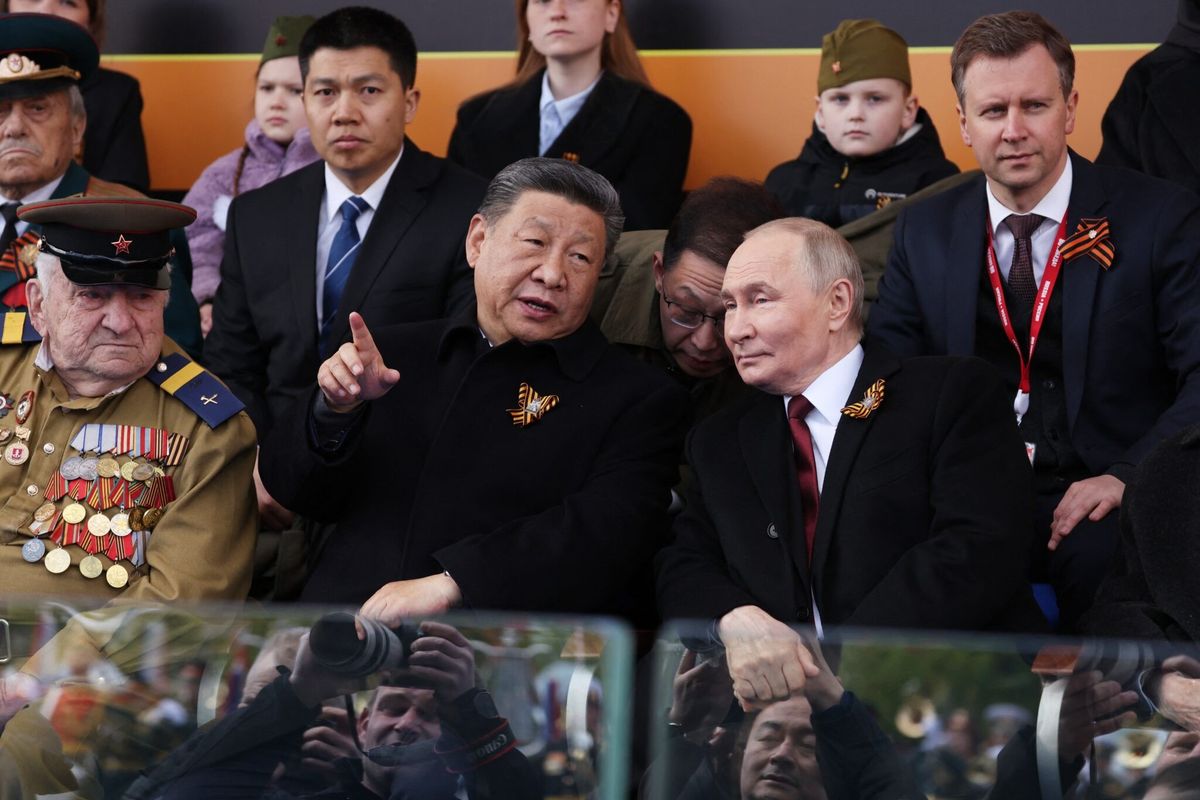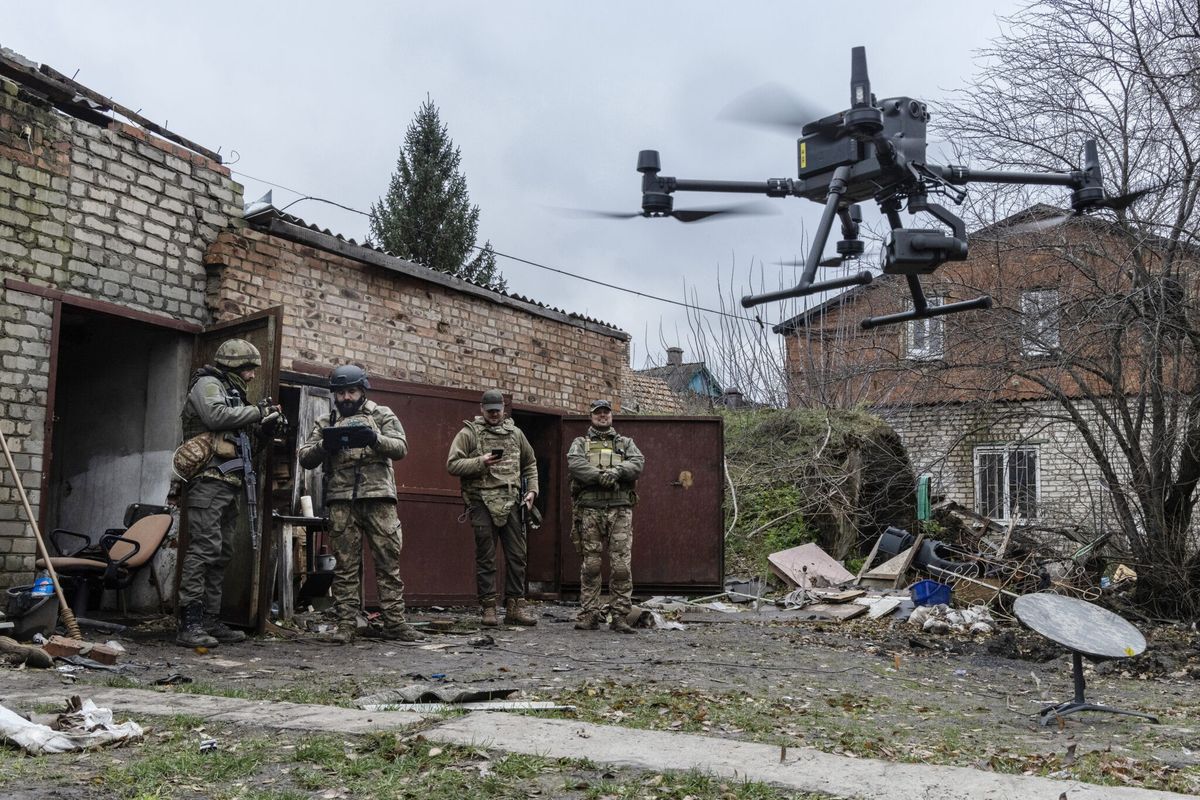SUBSCRIBER+ EXCLUSIVE REPORTING — It’s one of the stranger economic realities of the war in Ukraine: Ukraine is still earning $800 million a year shipping Russian gas to Europe, shipments that net Russia more than $6 billion a year in hard currency. With the flick of a switch, Ukraine could end that flow of cash to Moscow – cash that is fueling Russia’s war.
Why wouldn’t Ukraine do that?
As with much else in this war, the answer is: It’s complicated. In this case, complicated because of legal contracts and European politics. Three small European Union (EU) countries – Hungary, Slovakia and Austria – still buy the cheap Russian gas that flows through Ukraine, and other than winning the war, Ukraine wants nothing more than to become a member of the EU. Cut the flow of that Russian gas, and Ukraine might lose critical support for EU membership.
“The only reason Ukraine is hesitating is the huge pressure from Hungary and Slovakia,” said Sergiy Mokogon, who served from 2019 to 2022 as chief executive of Gas Transmission System Operator of Ukraine, the state-owned monopoly that runs Ukraine’s gas pipelines.
“They can create huge tensions for Ukraine,” Mokogon told The Cipher Brief. “Block our borders, block any negotiations with the European Union for accession, financial support, or even military support, as Hungary constantly does. That’s why Ukraine is in a very vulnerable position now.”
The transport contract with Russia expires at the end of December, leaving the Ukrainian government with a fraught choice: stop the flow of cash to Russia – or keep the peace with some of Russia’s closest friends in the EU.
A pre-war pipeline
The gas transit contract is the legacy of a decades-old partnership that used massive pipelines stretching across Ukraine to bring gas to Europe from Russian oil fields as far away as Siberia. The flow is now down to a trickle as the EU has largely weaned itself from Russian energy; it’s barely a tenth of what it was before Russia’s full-scale invasion of Ukraine in February 2022.
Cutting Russia’s gas exports has been a key to stanching the revenues that underwrite Russia’s war on Ukraine, and the European Union has slashed its use of Russian gas by about 85 percent. At its peak in 2019, Russia exported about 180 billion cubic meters (bcm) of gas annually through a series of pipelines across Ukraine and Belarus, through Turkey, and under the North Sea, with Ukraine accounting for about 90 bcm, or half of the gas exported to EU countries. That figure is now down to 28.3 bcm, according to Reuters. The cost to Russia, at current prices, is about $12.5 billion a year.
But Russia still has a few willing European customers for its well-below-market gas. Hungary, Slovakia and Austria have continued to take their deliveries via those old Ukrainian pipelines. And so, while Russia and Ukraine remain mired in a protracted and bloody war, Russian gas keeps flowing through Ukraine, and into the EU. And the $6 billion a year is still flowing into the Kremlin’s coffers.
The fault is not Ukraine’s, said Mokogon. Ukraine is bound by a 2019 agreement with Russia and by delivery contracts to EU member states.
“Ukraine is just the transport country,” Mokogon said in an interview with The Cipher Brief. “If EU consumers like Slovakia and Austria would stop buying Russian gas, Ukraine would stop the delivery.”
The case for a cutoff
Seven months from now, when the contract expires, Ukraine will have to make its choice – with both political and economic factors in play.
The arrangement is not particularly lucrative for Ukraine. Mokogon said that while Ukraine receives $800 million annually for the shipments, “we just cover our expenses and earn a miserable amount of money which does not justify the continuation of the transit.”
An end to passage through Ukraine would be a blow to Russia’s hopes of using its hydrocarbon reserves to fund the war, as there are few other ways for Russia to get its gas to market. Russia’s state budget has seen revenues from energy sales drop 24 percent from 2022 to 2023, according to a recent report from The Atlantic Council.
Meanwhile, other EU countries are tapping flows from Azerbaijan (via a pipeline through Turkey) and from offshore wells in Norway, and they have seen a massive boost in liquified natural gas traveling by sea from the U.S., with imports more than tripling since 2022.
“Europe’s dependence on Russian gas was supposed to be a blackmail tool for Putin to discourage us from supporting Ukraine,” the Czech Republic’s minister of industry and trade, Jozef Sikela, said in March. “As in many other ways, however, he failed. We can do without Russian gas.”
Researchers at the German Institute for Economic Research said in a recent bulletin that the EU, including Hungary and Austria, could easily make up for all its Russian gas right now, with existing pipeline supplies and LNG from the US and Qatar, without adding any new infrastructure. They just would have to pay more for it.
For Ukraine, the decision would seem an easy one: End the arrangement once the contract expires – and end the $6 billion-a-year cash flow to Moscow.
The case for keeping the gas flowing
To understand why Ukraine might renew the Russia deal, it helps to understand Ukraine’s long-standing desire to join the EU, for all the political and economic benefits that would bring for the war-torn nation. EU membership would allow Ukraine to adopt the stable Euro as its currency, benefit from EU aid to integrate the country into Europe’s economy, and provide another important bulwark against Russian control.
A vote to enshrine a new EU member would have to be unanimous, meaning that those three benefactors of the Ukraine pipeline arrangement hold a veto power over membership for Ukraine. It’s not clear how these countries would respond were Ukraine to end what has been an extremely generous energy arrangement for their citizens – but there are clues in how their governments have dealt with Moscow since the war began.
Austria has been reluctant to cut ties with Russian business, and the energy deal presents an extreme case; while less than 10 percent of the EU’s gas imports now come from Russia, Austria still gets 98 percent of its gas from Russia. Austria’s OMV energy company and the Vienna Stock exchange also profit heavily from operating a distribution hub in Baumgarten, near Vienna, that directs Russian and other gas supplies across the continent.
But there is intense debate about the issue in Austria.
When the EU ambassador to Vienna Martin Selmayr said last fall that “blood money is sent to Russia every day with the gas bill,” he was swiftly summoned for a reprimand by the Austrian foreign ministry. But in February of this year, Austria’s Energy Minister and Green Party member Leonore Gewessler warned that her country must stop financing Russia’s war machine. “With our energy bills, we are indirectly financing a heinous war in Ukraine,” she said.
Hungary is Ukraine’s biggest concern. The populist government of Prime Minister Viktor Orban has seized almost every opportunity to stall European Union aid for Kyiv, by one count blocking 41 percent of EU resolutions to aid Ukraine. This week, Hungary’s foreign minister Péter Szijjártó held up a €6.6 billion EU aid package for Ukraine that includes €860 million to buy weapons. And Hungary has been delaying an EU €5 billion Ukraine Assistance Fund and an agreement to use profits generated by billions of dollars in frozen Russian assets to buy weapons for Ukraine.
Earlier this month, Orban backed a Chinese plan for peace talks and a ceasefire, which would effectively leave Russia in control of large swathes of Ukraine, and which is anathema to Kyiv.
“Ukrainian accession talks [are] being held hostage by Hungary,” said Lithuania’s pro-Ukraine foreign minister Gabrielius Landsbergis.
In Slovakia, Russian gas means lower prices and more votes for the populist government of Prime Minister Robert Fico. In January, after a meeting with Ukraine’s prime minister, Fico announced – prematurely – that the transit deal would be extended. "An agreement arose that the transit of Russian gas through Ukraine will probably continue, which is great news," Fico said in a statement after the visit, Politico reported.
But Fico was immediately and publicly contradicted by Kyiv, where officials said that no such decision had been made.
Fico has called publicly for an end to military aid to Ukraine, and a senior Slovak official who is handling energy questions for the country acknowledged that economics would drive a push to keep the Ukraine pipeline deal intact.
“It is necessary to make efforts to maintain the transportation of gas through Ukraine even after 2024," Kamil Šaško, state secretary of the Ministry of Economy, said after an EU meeting in March to discuss gas sources and prices.
Mokogon, the former Ukrainian gas executive, says that while the individual efforts of some countries to halt imports of Russian gas have beem welcome, in the end Ukraine needs to know that Europe and the U.S. will have their back if Kyiv decides not to renew the transit contract with Russia.
”It’s not fair that the European Commission is not very active on this matter,” said Mokogon. “There should be a clear message from U.S. and EU leaders that it’s not acceptable to continue the transit and they should put pressure on the Ukrainian government.”
Again - it’s complicated.
Read more expert-driven national security insights, perspective and analysis in The Cipher Brief.














